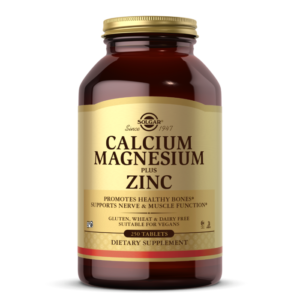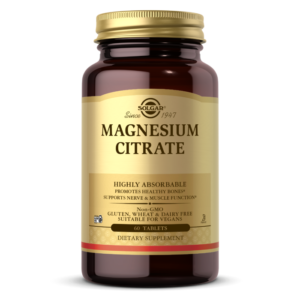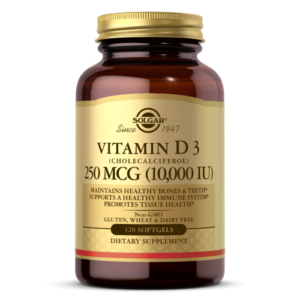Key Takeaways:
- Bone modeling is the process of removing old bone and replacing it with new bone to help them grow and strengthen. Bone remodeling happens in a fully-formed adult skeleton.
- Peak bone mass is the maximum amount and size of bone a person will have during their lifetime. Genetics, diet, and lifestyle factors heavily influences peak bone mass.
- Taking supplements like calcium, vitamin D, and magnesium can help support bone health.*
Did you know you don’t have the same skeleton as you did 10 years ago?
This is all thanks to a process called bone remodeling, which helps keep your bones healthy and strong throughout the course of your life.
Understanding bone remodeling is especially important for menopausal and perimenopausal women, who are at a greater risk of bone injuries and fractures.
Let’s take a deeper look at what bone remodeling is and, more importantly, why you should care about it.
What is bone modeling?
Your bones do more than just provide support for your body. They allow you to move, protect your organs from injury, and act as a storehouse for essential minerals like calcium and phosphorus.
During childhood and adolescence, bones are sculpted by a process called bone modeling. After that, it moves into a process called “bone remodeling,” in which new bone is formed at one site and old bone is removed from another site within the same bone. Bone remodeling allows individual bones to grow and shift so that the skeleton can adapt on its way to adulthood.
Just like you can deposit or withdraw money from a bank, your bones can “deposit” or “withdraw” bone tissue. During your childhood and teenage years — the bone modeling stage — new bone is added (or deposited) to the skeleton faster than old bone is removed (or withdrawn). As a result, your bones become larger, heavier, and denser.
Bone modeling vs. Bone remodeling
Bone modeling takes place from birth to adulthood. Bone modeling approaches 100% during the first year of life, whereas bone remodeling continues over your lifetime.1
Bone remodeling happens in the fully-formed adult skeleton. Remodeling doesn’t change the size or shape of your bones — it gradually replaces them.
The bone remodeling process takes between four to eight months to complete.
What is peak bone mass?
Peak bone mass is the maximum amount of bone, and size of bone, a person will have during their lifetime.2
While genes play a significant role in your peak bone mass, there are lifestyle factors that can contribute to it as well. Just as healthy lifestyle choices can positively affect your peak bone mass development, negative choices such as smoking, physical inactivity, or poor nutrition can negatively affect your bone development.3
There’s a limited time you can influence your peak bone mass. The best time is during years of rapid growth: childhood, adolescence, and early adulthood.
Most people reach their peak bone mass in their 20s or 30s. After this, your bone mass declines, and bone tissue is withdrawn from your “bone bank” faster than it is deposited.
Up until about age 40, all the bone removed is replaced.4 After age 40, however, less bone is replaced. If bone tissue is removed faster than it is replaced, you may be at risk of bone injuries and fractures.
At this stage of life, taking care of your bone health is crucial. We’ll guide you through the best ways to take care of your bone health, but first, let’s look at another transformative time for your bones: menopause.
Women’s bone health & menopause
Most women enter menopause between the ages of 45-55. As levels of estrogen drop dramatically, women undergo rapid bone loss. In fact, it’s estimated that women lose up to ten percent of their bone mass in the first five years after menopause.5
This dramatic reduction in bone mass reduces bone strength and increases a woman’s risk of bone injuries and fractures.6
Menopausal or perimenopausal women should take extra care in supporting their bone health.
The best supplements for women’s bone health
1. Calcium
Calcium is the main mineral found in bones, and it is the most important mineral for bone health. Because old bone tissue is constantly being broken down and rebuilt with new bone tissue, it’s important to consume calcium daily to help maintain bone strength.*
If you don’t have enough calcium in your diet, calcium is removed from where it is stored in the bones. It’s important to make sure that you are getting an adequate intake of calcium in the diet to help continue supporting strong bones.*7
Some foods have higher calcium bioavailability than others, meaning it’s easier for your body to absorb. Having adequate levels of vitamin D and magnesium is essential for the absorption of calcium. This is why many supplements offer calcium, vitamin D, and magnesium in one supplement.8
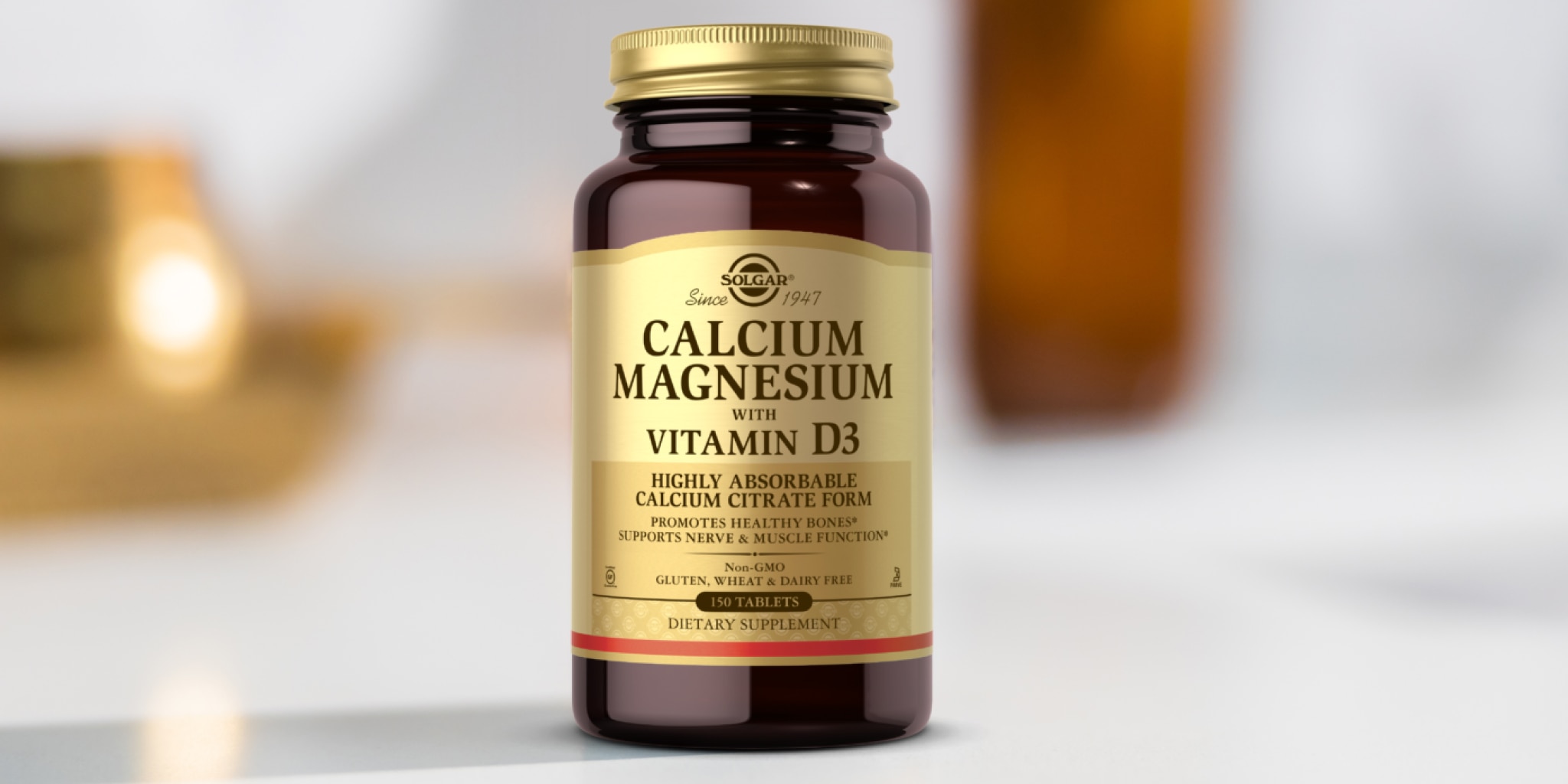
Solgar® Calcium Magnesium with Vitamin D3 Tablets
Solgar® Calcium Magnesium with Vitamin D3 offers three nutrients for supporting bone health in one easy supplement. Each serving supports healthy bones, a healthy immune system, and nerve and muscle function.*
Solgar® Calcium Magnesium Plus Zinc
Calcium, magnesium, and zinc are all important for healthy bones.* This formula offers all three and supports strong bones and teeth, a healthy immune system, and more.* And it’s non-GMO, vegan, gluten-free, dairy-free, kosher, and halal!
2. Vitamin D3
Like calcium, vitamin D is also important for maintaining strong and healthy bones.* Vitamin D is essential for the absorption of calcium from food or supplements.*
Vitamin D is often called the “sunshine vitamin” because the majority of vitamin D in the body is sourced through synthesis upon exposure to the sun’s UV rays. However, if you spend a lot of time indoors or are in a less sunny climate, you may not be getting adequate vitamin D. Even wearing sunscreen — something you should always do outdoors — can inhibit your body’s ability to absorb vitamin D from the sun.
Taking a vitamin D supplement is the easiest way to ensure you are getting your daily dose of vitamin D in a form that your body can readily absorb.
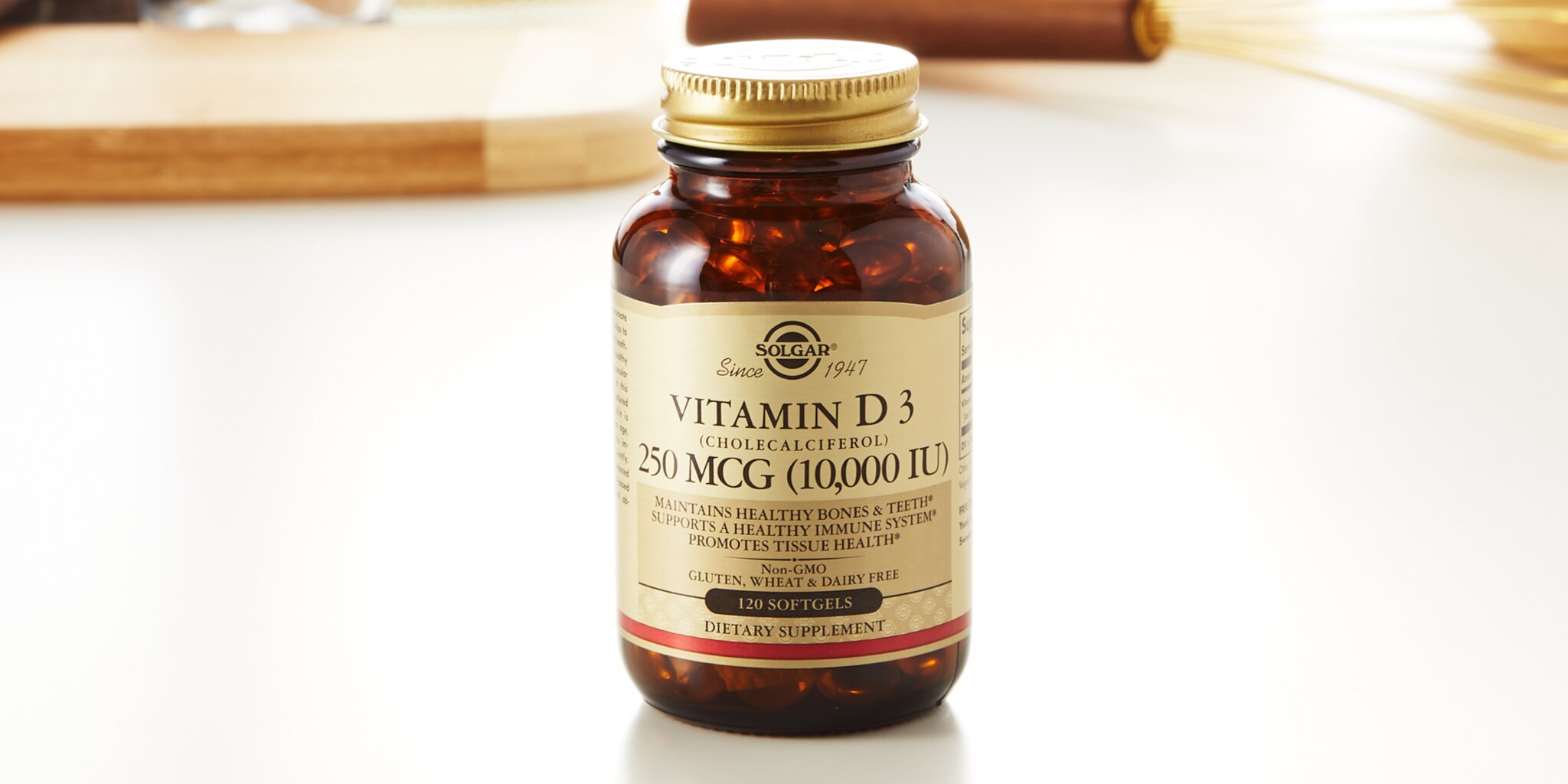
SOLGAR® VITAMIN D3 SOFTGELS
One Solgar® Vitamin D3 softgel taken daily helps maintain strong bones and teeth and a healthy immune system.* Since vitamin D3 is fat-soluble, our convenient, oil-based softgels are easy to swallow and absorb. And they’re non-GMO, gluten-free, and dairy-free.
SOLGAR® VEGAN VITAMIN D3
Solgar® Vegan Vitamin D3 is made with naturally & responsibly-sourced lichen and helps maintain strong bones and teeth by supporting the absorption of calcium and phosphorus.*
3. Magnesium
Magnesium is an essential mineral involved in over 300 reactions in the body. It’s also crucial for bone health, with about 60% of this mineral being found in bone tissue.
Magnesium plays an important role in the absorption and metabolism of calcium, which is why you may often find it in calcium supplements.* People with higher intakes of magnesium have been found to have higher bone density, which is important in maintaining overall bone health.9
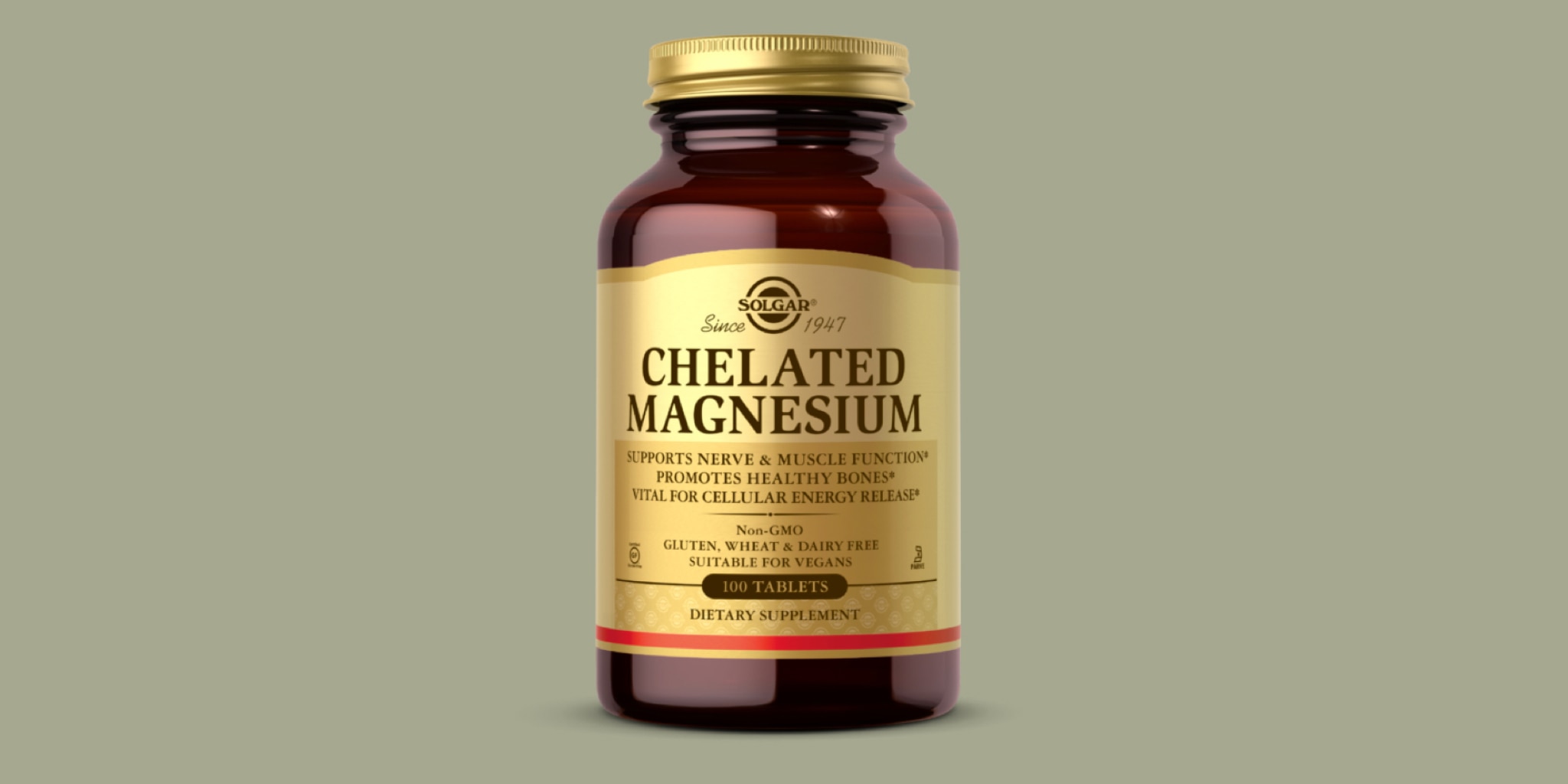
Solgar® Chelated Magnesium
Solgar® Chelated Magnesium helps support nerve and muscle function, healthy bones, and heart health.* This formula provides a patented form of chelated magnesium to help support optimal absorption and assimilation.* And it’s non-GMO, vegan, gluten-free, dairy-free, and kosher!
GET THE LATEST UPDATES AND EXCLUSIVE DEALS WHEN YOU SIGN UP FOR OUR NEWSLETTER!
Summing it up
Understanding bone remodeling and peak bone mass is essential when learning how to best take care of your bone health. Living a healthy lifestyle, as well as taking bone health supplements, can allow you to support strong bones, no matter what stage of life you are in.
Want easy tips on staying healthy? Follow us on Tiktok! (@solgarvitamins)
*These statements have not been evaluated by the Food and Drug Administration. These products are not intended to diagnose, treat, cure or prevent any disease.
The information provided on this site is intended for your general knowledge only and is not a substitute for professional medical advice or treatment for specific medical conditions. Always seek the advice of your physician or other qualified healthcare provider with any questions you may have regarding a medical condition. The information on this website is not intended to diagnose, treat, cure or prevent any disease. Never disregard medical advice or delay in seeking it because of something you have read on the Solgar® site.



